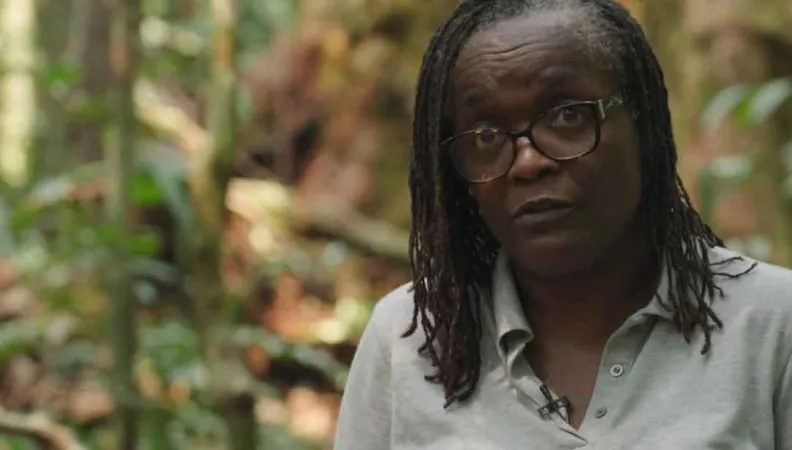Share the page
Preserving Africa’s Forests: Vigilance, Scientific Analysis and Regeneration
Published on

With the One Forest Summit being held in Libreville, Gabon, this week we dive into AFD Group's contribution to preserving Central Africa’s primary forests. The best logging techniques and scientific knowledge can ensure the sustainability of Gabon’s exceptional forests, if they’re underwritten by a rigorous regime of certification and protection.
“In a country like Gabon, 88% of which is covered by forest, you can't build roads, hospitals, schools or farm to produce food without cutting down forests,” says Marthe Mapangou, AFD’s forestry specialist in the capital Libreville. Population growth and Communities’ growing needs are putting pressure on natural resources like forests, which are making it increasingly difficult to exploit forests sustainably; that is, without compromising their regenerative capacity.
See also: Feature Report - Forests: As Vital as they are Vulnerable
While Gabon has chosen a forest concession for its economic activity, AFD Group provides support for the sustainable development of exploited territories. Firstly, the Group supports field operators in implementing ethical practices, encouraging forestry operators to use responsible planning to ensure natural forest renewal and to accelerate this process in degraded areas. Secondly, AFD is helping to build the capacity of the country and government so that it can perform its control, monitoring and forestry policing operations.
#OneForestSummit
Growing needs of populations, demographic changes... In #Gabon, time is running out on the establishment of exploitation solutions that allow the country to prosper while preserving the #forest.
Analysis by Marthe Mapangou ?https://t.co/eANJvvpZ5n pic.twitter.com/HeGjUmufFh
— AFD_en ?? ?? (@AFD_en) March 2, 2023
AFD is also taking decisive action to preserve this common forest resource by promoting scientific cooperation. Just like in Gabon, the forests of Central Africa and the Congo Basin are primary forests whose ecosystems have remained intact over the centuries.
To help protect these forests, it is therefore essential to better understand how they function, a question for which scientific cooperation is best placed to find answers. In countries with recently developed scientific expertise such as Gabon, there is a need to accelerate the acquisition of strategic knowledge to make the best possible decisions on sustainable forest planning.
See also: In the Struggle to Make Forests Sustainable, How Effective are Verification Systems?
“Scientific cooperation with research institutes that have a background in such studies and methodology will play an important role in improving our knowledge of forest ecosystems, and the reproduction cycles of our forests,” says Marthe Mapangou. “Today, under most of the forestry permits used, the trees being exploited are a hundred years old on average, with a minimum diameter of 90 cm,” she continues. Other examples include developing low-impact felling techniques and managing the carbon sequestration capacity of forests.
“However, scientific cooperation comes at a cost,” says Marthe Mapangou. For this reason, AFD Group is focusing its work on new targeted financing mechanisms that aim to improve the daily lives of people in forest areas and further develop the scientific expertise required for sustainable forest management.
See also: Protecting Forests in Turkey: Climate Change Adaptation and Biodiversity Protection
Side menu
$(document).ready(function() {
$('#most_viewed_nodes_block').replaceWith($('#mi'));
});
Forests Series
Gabon: Exploiting Forests without Destroying them 6 Good Reasons to Preserve Forests Combating Deforestation in the Congo Basin Mobilizing Local Populations in Forest Management In the Struggle to Make Forests Sustainable, how Effective are Verification Systems? AFD’s 30 years of Action for Congo Basin Forests "We encourage forest operators to change their practices" Main Menu
